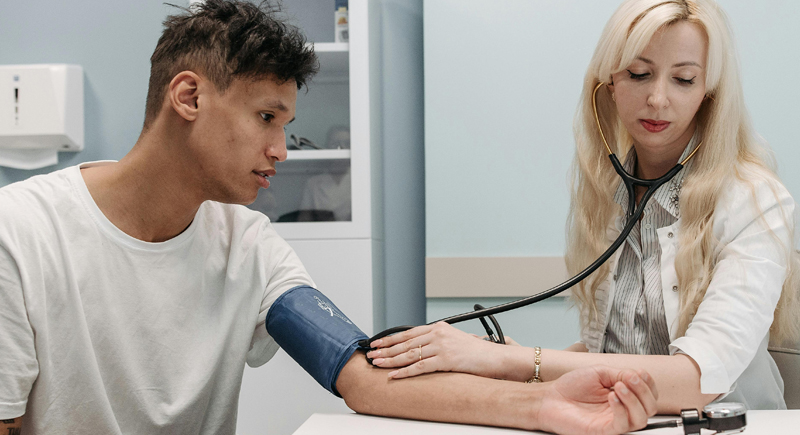Being Healthy Actually Saves You Money, Here’s How
Being healthy isn’t just about looking good or feeling great—it can also save you a ton of money! Many people overlook the financial benefits of a healthy lifestyle, but the truth is staying fit and taking care of yourself can help fatten your wallet. From avoiding costly medical bills to cutting down on everyday expenses, here’s how being healthy can actually put more money in your pocket.
Eating Healthy = Saving Money

Credit: freepik
When you opt for nutritious, home-cooked meals over fast food and takeout, you’re not just investing in your health but also saving money in the long run. A study published in the Journal of Hunger & Environmental Nutrition found that cooking at home can save you around $58 per month compared to dining out. Plus, cooking your meals allows you to control portion sizes and choose healthier ingredients, reducing the risk of overeating and potential weight-related health issues.
Regular Exercise Cuts Medical Costs

Credit: pexels
Regular physical activity keeps your body in shape and helps prevent many health problems, ultimately saving you money on medical expenses. The Centers for Disease Control and Prevention (CDC) states that staying active can lower your risk of developing chronic diseases like heart disease, type 2 diabetes, and certain cancers. By investing time in exercise now, you’re essentially investing in a healthier future and potentially avoiding costly doctor visits and prescription medications down the road.
Quitting Smoking Boosts Your Bank Account

Credit: freepik
On average, a pack-a-day smoker can spend over $2K per year on cigarettes alone. That amount could be better spent on things enhancing your life, like travel or hobbies. Quitting smoking can also lead to lower healthcare costs in the long term, reducing risks of developing smoking-related illnesses such as lung cancer and heart disease. So, if you need another reason to stub out that cigarette, think of the extra cash you’ll have in your pocket.
Prioritizing Sleep Saves You from Impulse Spending

Credit: pexels
Research published in the Journal of Marketing Research found that sleep-deprived individuals are more likely to make impulsive and irrational purchasing choices. By prioritizing rest and ensuring you get the recommended 7 to 9 hours of sleep per night, you’ll be better equipped to resist the urge to splurge on unnecessary items. Next time you’re tempted to make a late-night online purchase, consider hitting the hay instead and waking up refreshed and financially savvy.
Preventive Care Reduces Health Expenses

Credit: pexels
Regular check-ups with your doctor, screenings, and vaccinations can help catch potential health issues early on, preventing them from escalating into more serious and expensive conditions. Preventive services like vaccinations alone can save nearly $300 billion in direct healthcare costs in the United States. Knowing this, perhaps you won’t skip those annual check-ups or screenings anymore—they could end up saving you a bundle in the long term.
Walking and Biking Save on Transportation Costs

Credit: pexels
You better start lacing up those sneakers or hopping on your bike. Why? Because it’s good for your wallet and waistline! With rising gas prices and increasing fares for public transit, opting for more eco-friendly modes of transportation can lead to significant savings over time. Incorporating physical activity into your daily commute helps you stay active without needing extra time for exercise.
Stress Management Reduces Medical Bills

Credit: freepik
By implementing stress-reducing techniques such as meditation, yoga, or simply taking time for self-care activities, you can lower your risk of stress-related illnesses and their associated healthcare costs. Research published in the journal Health Psychology suggests that managing stress can significantly reduce healthcare utilization and costs. So, make self-care a priority—it’s not just indulgent; it’s a smart financial move, too.
Maintaining a Healthy Weight Saves on Clothing Costs

Credit: pexels
As you shed excess pounds or prevent weight gain through healthy lifestyle choices, you’ll find that your clothes fit better and last longer, reducing the need for frequent wardrobe updates. On top of that, you’ll feel more confident and comfortable in your own skin, eliminating the desire to constantly splurge on new outfits to feel good about yourself. Think of staying fit as an investment in your health and wardrobe; your wallet will thank you!
Drinking Water Instead of Soda Trims Your Budget

Credit: pexels
The average American spends hundreds of dollars per year on soda alone, not to mention the additional costs associated with dental treatments for cavities and other oral health issues caused by excessive sugar consumption. By opting for water, which is often free or significantly cheaper than sugary drinks, you’ll not only save money but also hydrate your body without added calories or harmful additives.
Growing Your Own Produce Cuts Grocery Costs

Credit: freepik
With the rising cost of fresh produce, having a home garden allows you to enjoy organic, nutrient-rich foods at a fraction of the cost of store-bought equivalents. Plus, gardening provides physical activity and stress relief, further contributing to overall well-being. Even if you don’t have a green thumb, starting small with easy-to-grow herbs or tomatoes can still lead to substantial savings over time. Now, go and get your hands dirty and reap the financial and health benefits of growing your own food!
Avoiding Alcohol Saves on Entertainment Expenses

Credit: pexels
Whether it’s pricey cocktails at bars or bottles of wine at restaurants, alcohol can quickly add up, especially if you’re indulging frequently. By reducing your alcohol intake or opting for non-alcoholic alternatives, you’ll wake up feeling refreshed and energized the next day and actually save money. In fact, you’ll likely find that you can have just as much fun socializing without the need for alcohol, leading to more memorable experiences without the hefty bar tab.
Regular Dental Care Prevents Costly Procedures

Credit: pexels
Regular dentist visits aren’t just about maintaining a bright smile—they can also prevent costly dental procedures down the line. By staying on top of your oral hygiene and attending routine cleanings and check-ups, you can catch dental issues early on before they require more extensive—and expensive—treatments. According to the American Dental Association, up to $50 in restorative and emergency treatments can be avoided for every dollar spent on preventive dental care.
Buying Generic Brands Lowers Grocery Bills

Credit: pexels
Many generic products contain the same ingredients as their brand-name counterparts but come at a fraction of the cost. Consumer Reports states that you can save up to 25% or more by choosing generic over brand-name items. Believe us when we say buying in bulk or taking advantage of sales and coupons can further stretch your grocery budget, leaving you with more money for other health-conscious purchases.
Limiting Fast Food Saves Money and Calories

Credit: pexels
A study published in the American Journal of Preventive Medicine found that frequent fast-food consumption is associated with higher calorie intake and poorer diet quality. By opting for homemade meals or healthier alternatives when dining out, you’ll save money and improve your overall nutritional intake and well-being. You don’t have to skip the drive-thru forever but limit it as much as you can.
Taking Advantage of Workplace Wellness Programs

Credit: pexels
Many employers offer workplace wellness programs as part of their employee benefits package. These programs may include gym memberships, smoking cessation programs, mental health resources, and more. Take advantage of these offerings; you not only invest in your health but also reduce your out-of-pocket healthcare costs through employer-sponsored initiatives. Participating in workplace wellness activities can also lead to a more positive work environment and improved productivity, benefiting employees and employers.
Investing in Health Insurance Prevents Financial Hardship

Credit: freepik
Now, while health insurance may seem like an added expense, it’s actually a crucial investment in protecting your financial well-being. Without adequate coverage, a medical emergency or unexpected illness could quickly drain your savings and plunge you into financial hardship. Investing in health insurance gives you peace of mind, knowing you’re financially protected against costly medical bills and healthcare expenses. Many preventive services are often covered at little to no cost, too, allowing you to prioritize your health without breaking the bank.